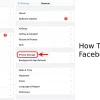Your website should have content that’s appealing to visitors and that they don’t mind spending hours reading. It should be logical, coherent, and persuasive. Yet, you cannot ignore the importance of appeasing search engines as well.
While your content should be attractive to visitors, that won’t matter much if your pages aren’t ranking well on search engine results pages for your chosen keywords. On average, roughly 70 percent of a website’s traffic will come from search engines. Quality content that simultaneously ranks high is the goal every site must aspire to. How do you achieve that?
Source for Quality Backlinks
Google takes hundreds of signals into account when determining what pages rank first for a search query. Not all signals are of equal weight though. When it comes to signal priority, backlinks are among the top 3 most important. Google sees quality backlinks as a vote on a website’s credibility and authority. The more backlinks to your pages from reputable sites, the higher your page is likely to rank on search results.
For that to happen, your pages must contain high-quality content that people will be confident to refer to. In addition, find opportunities to publish guest posts on sites with an established reputation. As much as possible, pick the right anchor text for your backlinks. Use tools such as Linkio – SEO Software to plan your backlinks and anchor text for optimal impact.
Respond to Your Target Audience’s Most Popular Questions
Resist the urge to push out content in large volumes so as to rank your website quickly. It helps to understand just how vast the world wide web is. There were more than 130 trillion web pages indexed by Google in 2016 and that number is likely substantially larger today. Thousands of pages on your site won’t cause a blip volume-wise.
You will have much better luck at building popular content if you address questions that trouble your target audience. Create content that comprehensively answers these questions. That way your website has a good shot at making it to the first set of results when someone searches for the target keyword phrase. You can have a few pages of content but that has a high impact on visitors and scores well with search engine ranking algorithms.
Understand Your Target Audience’s Search Intent
Put yourself in your target audience’s shoes and think about their end goal when they search for a given keyword phrase.
For example, if someone is searching for a mortgage calculator, they are probably contemplating buying a house. You can’t expect your website on mortgage calculators to do well if it doesn’t include plenty of content around buying a house. The content increases user engagement and the time a visitor will spend on your site. Google deems sites with above-average visit duration as having relevant, quality content.
Target Long-Tail Keywords
If you are setting up a mortgage-related website, appearing on the first page of search results for the keyword ‘mortgage’ is unlikely to happen. You’ll be competing for supremacy against not just global banks such as Bank of America and HSBC but also major financial news sites like CNBC and Bloomberg.
If you want better odds of a high ranking, you’re better off going for long-tail keywords. That would mean zeroing in on a specific aspect of mortgages (such as ‘applying for a mortgage with bad credit’) or addressing hyper-local topics (like ‘upstate new york mortgage’). There’d be much lower competition. Also, users who search for long-tail keywords are usually closer to making a decision and therefore converting.
Creating quality that ranks is a medium- to a long-term project. Once you start to make the appropriate moves and changes, you are unlikely to see meaningful results in days. Brace for weeks or even months to see the right kind of movement. The good thing is once you are heading in the right direction, your site will be carried by the momentum. The content work you do will continue drawing traffic years later.










